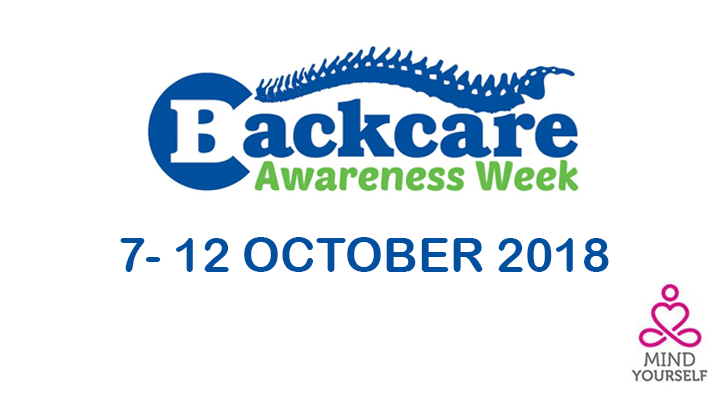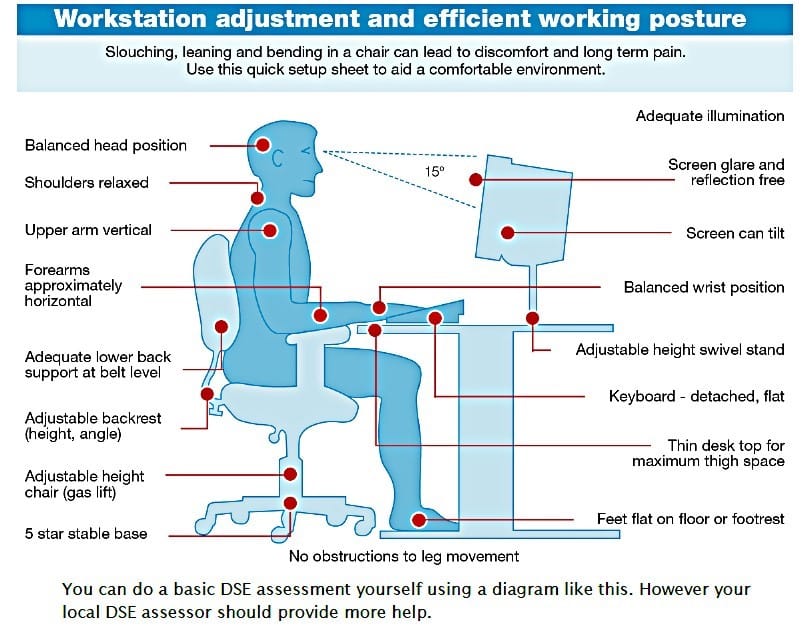Backcare Awareness Week 7-12 October
3 Min Read
08 October 2018

Pain in the lower back (lumbago) is particularly common, although it can be felt anywhere along the spine – from the neck down to the hips.
Pain in the lower back (lumbago) is particularly common, although it can be felt anywhere along the spine – from the neck down to the hips. In most cases the pain isn't caused by anything serious and will usually get better over time.
Sitting for long periods in front of a computer is storing up trouble. No matter how good your positioning, it's important to get up every so often. Health experts recommend breaking up sedentary time every 30 minutes for at least one to two minutes.
Workstation factors that can affect your back include:
- seating posture
- computer screen position
- chair height
- keyboard position
- mouse position
- desk equipment layout
When you're sitting, your thighs should be at right angles to your body or sloping slightly down.
If your chair is properly adjusted, your feet should be firmly on the floor, but use a footrest if it's more comfortable. The basic rule is to plant your feet on the floor and support your back.

Break up long periods of sitting. Frequent short breaks are better for your back than a few long ones. It gives the muscles a chance to relax while others take the strain. This can prevent your back becoming stiff and tense.
Most jobs provide opportunities to take a break from the screen, such as getting a drink, going for some fresh air, filing or photocopying
Lifting safely
One of the biggest causes of back injury, especially at work, is lifting or handling objects incorrectly. Learning and following the correct method for lifting and handling objects can help prevent back pain.
Key points for lifting safely:
- plan your lift
- start in a stable position
- keep the load close to your waist
- keep your back as straight as possible
- avoid twisting your back or leaning sideways avoid lifting heavy loads
- push heavy objects, don't pull them
- distribute the weight evenly
Back pain can get better on its own within a few weeks or months and you may not need to see a doctor or other healthcare professional.
But it's a good idea to get help if:
- the pain doesn't start to improve within a few weeks
- the pain stops you doing your day-to-day activities
- the pain is very severe or gets worse over time
- you're worried about the pain or are struggling to cope
Through BHSF you can get help and support with the GP helpline and you can avail of different therapies such as physiotherapy and osteopathy. If you require any assistance please email mindyour@serc.ac.uk
Page Tags
SERCLatest News
Keep up with the latest from SERC



